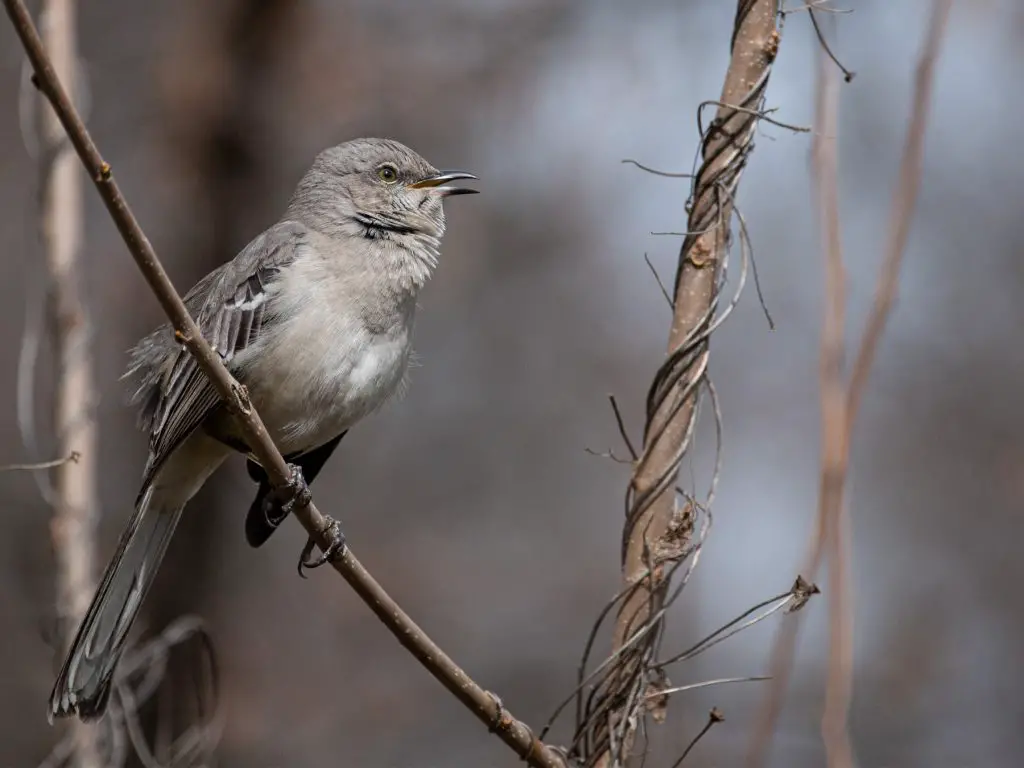Mockingbirds are delightful creatures known for their melodious songs and charming presence. However, it can be quite frustrating when they invade your yard and disrupt the peace. In this ultimate guide, I will share valuable insights on understanding mockingbird behavior and provide effective steps to eliminate them. By the end of this article, you will be equipped with natural methods to deter these lively birds and restore tranquility to your yard.
Understanding mockingbird behavior
Before we delve into the methods of getting rid of mockingbirds, it is important to understand their behavior. Mockingbirds are highly territorial creatures, especially during their breeding season, typically from March to August. They are known for their remarkable ability to mimic the songs of other birds, often mixing them together to create their own unique melodies.
Mockingbirds are attracted to yards with ample food sources such as insects, berries, and fruits. They thrive in open spaces with easy access to perches, making trees, shrubs, and wires their preferred spots. They are also highly protective of their nests and will fiercely defend them against threats, including humans and pets.
How to Get Rid of Mockingbirds in Your Yard
Now that we have a better understanding of mockingbirds let’s explore five effective steps to get rid of them from your yard:
Remove food sources
Mockingbirds are attracted to yards that offer a bountiful supply of food. You can discourage them from frequenting your yard by eliminating these food sources. Keep your yard clean and free from fallen fruits, berries, and compost piles. Additionally, consider minimizing the use of bird feeders or switching to bird feed less appealing to mockingbirds.
Create an Unfavorable Environment
Mockingbirds enjoy perching on tall trees and shrubs, from where they can sing melodious tunes. By strategically pruning your trees and shrubs, you can limit their perching spots and discourage them from staying in your yard. Additionally, installing bird deterrents such as reflective objects, wind chimes, or scarecrows can create a less appealing environment for mockingbirds.
Limit Access to Nesting Spots
Mockingbirds are known for their protective nature, especially regarding their nests. To discourage them from nesting in your yard, limiting their access to potential nesting spots is important. Ensure that your trees and shrubs are pruned to prevent them from building nests. You can also use bird netting to cover areas where nesting is likely.
Use Visual and Audio Deterrents
Mockingbirds are highly sensitive to their surroundings. Utilizing visual and audio deterrents can help discourage them from entering your yard. You can hang shiny objects such as CDs or strips of aluminum foil from trees and wires to create a visual deterrent. Playing recordings of predator bird calls can also make mockingbirds feel threatened and less likely to stay in your yard.
Seek Professional Assistance
If all else fails and you cannot remove mockingbirds from your yard, it may be time to seek professional assistance. Wildlife control experts can provide expert advice and offer humane solutions to resolve the issue. They have the knowledge and experience to handle mockingbirds efficiently and ensure your and the birds’ well-being.
Natural methods for deterring mockingbirds
While there are several effective methods for removing mockingbirds, it is also important to consider natural and humane alternatives. Here are a few natural methods for deterring mockingbirds from your yard:
Plant Bird-Repellent Vegetation
Certain plants and herbs have natural properties that repel mockingbirds. For instance, planting rosemary, lavender, or marigolds in your yard can help deter these birds. These plants emit scents that mockingbirds find unpleasant, making them less likely to stay in your yard.
Create a Diversion
Mockingbirds can be territorial and aggressive towards other birds. Creating a diversion in your yard can redirect their attention and prevent them from nesting. Installing birdhouses or nesting boxes for other bird species away from your main living area can attract mockingbirds to these alternative spots, reducing their presence in your yard.
Provide Alternative Food Sources
If you want to coexist with mockingbirds but reduce their impact on your yard, consider providing alternative food sources. Planting fruit-bearing trees or shrubs away from your main living space can encourage mockingbirds to focus on those food sources instead. This way, you can enjoy these charming birds’ presence without compromising your yard’s tranquility.
My Opinion
Mockingbirds are beautiful creatures that add charm and melody to any environment. While their presence in your yard may sometimes be overwhelming, it is important to balance deterring them and coexisting peacefully. Following the steps outlined in this guide and considering natural methods, you can create a harmonious environment where you and mockingbirds can peacefully share your yard.
Remember, respecting wildlife and handling conflicts with care is crucial. Understanding mockingbird behavior, implementing effective deterrents, and exploring natural alternatives will help you find the perfect balance between enjoying your yard and keeping the peace. So go ahead, implement these strategies, and reclaim your yard from the melodious but somewhat pesky mockingbirds.




